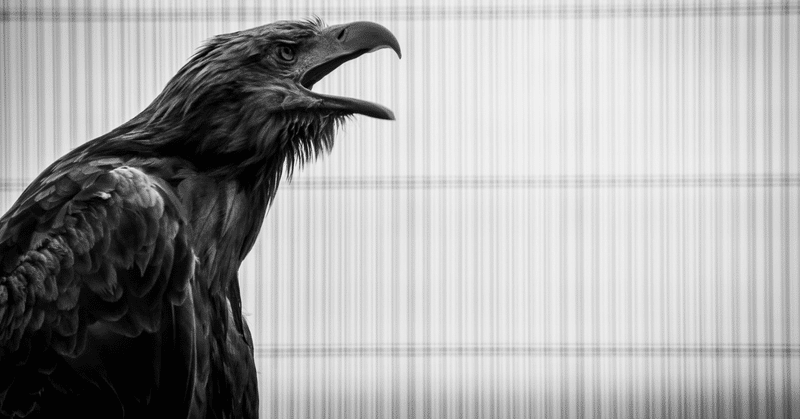
英語教育・英語学習に関する独り言36 ー 模擬TOEFL問題作成について12
大学開講前の繁忙期に休日出勤もせず、ラーメン屋や映画館に行って過ごす週末。まさに忙中閑あり。というわけで、夕方からはスカベンジャーについてあれこれリサーチ。ChatGPT、Google Gemini、Claude 3たちとあれこれ対話してドラフトを作ってもらう。それを自分好みにリライトする。そのリライトの文法チェックをしてもらう。さらにリライトする。さらにチェックしてもらう。その繰り返しで作り上げたのが、以下のパッセージ。
Mock TOEFL iBT Listening: Scavengers in the Ecosystem
Professor: Last week, we discussed the different trophic levels in an ecosystem – producers, consumers, and decomposers. Each organism plays a vital role and contributes to the overall balance. Today, we'll focus on a fascinating group that doesn't neatly fit into any single category. That is, scavengers. Does anyone have an idea what scavengers are and what they do?
Female Student: I think they are animals that eat dead things.
Professor: Exactly, Sarah. Scavengers refer to animals that feed on the carcasses of dead organisms. They usually don't actively hunt prey, but they do help maintain the balance in the ecosystem nonetheless. Can anyone think of some examples of scavengers?
Male Student: Vultures, maybe? They circle overhead and when they find a dead animal, they come down and just eat away at it.
Professor: Excellent example, David. Vultures are indeed iconic scavengers, with keen eyesight and a strong sense of smell that help them locate carrion. But scavengers come in all shapes and sizes. Anyone have other examples? Sarah?
Female Student: How about crabs? I've seen them feasting on things washed up on the beach.
Professor: Absolutely! Crabs on the coast and even some insects like beetles are important scavengers in their respective habitats. Now, why are these scavengers important? Let's discuss that. Well, there are three major roles that scavengers perform. The first is waste removal. Scavengers help decompose dead organisms by simply eating them. They consume matter that has been discarded or has died from predation, injury, disease or old age. Decaying bodies can be hotbeds for harmful germs and bacteria. Removing rotting matter from the environment is crucial. This helps enormously with ecological sanitation.
Male Student: Umm, professor. I have a question. Isn’t it unhealthy to feed on dead animals? Like you said, dead meat can harbor harmful bacteria. Don’t scavengers get sick?
Professor: That is actually a very good question. Let’s see. David, you were the one who brought up vultures as an example. So, let’s talk about them to answer your question. Yes, you’re right. Eating decaying flesh could make its eater sick. However, when it comes to scavengers, things are a little different. Since they are adapted to consume rotting or decaying flesh, they have evolved a particularly powerful stomach. In other words, they are able to secrete super-acidic gastric juice which thoroughly kills bacteria and viruses. Also, I’m sure all of you know that vultures are often bald-headed. They don’t have feathers on their faces or around their necks. Why? Well, vultures peck at animal carcasses and tear meat fragments from bones. They also probe deep into the body cavity to feed on organs. The bare skin around their faces and necks prevents meat scraps and blood from sticking nearby. This physical feature lowers the risk of illness for the vultures themselves. Furthermore, the absence of feathers allows them to expose their facial areas to sunlight after meals. This way, they eliminate bacteria and neutralize toxins through UV rays. OK, David?
Male Student: Yes, of course.
Professor: All right, onto the next role. And this actually has so much to do with the first one. That is, disease control. Just like we’ve discussed, decomposing bodies can harbor harmful bacteria and pathogens. Scavengers detect carcasses and consume them quickly. By doing so, they limit the time it takes for pathogens to multiply and potentially spread to other animals. Imagine a scenario where a deer dies from a bacterial infection. Without scavengers to promptly consume the carcass, the bacteria could multiply and contaminate nearby water sources or vegetation. That would put other animals that come into contact with the contaminated area at risk. However, scavengers like vultures efficiently remove the carcass and reduce the likelihood of disease transmission.
Professor: Now, let’s talk about the third role: nutrient cycling. Now, let's talk about the third role scavengers play in the ecosystem: nutrient cycling. Keep in mind that a healthy ecosystem relies on the constant flow of nutrients – like nitrogen, phosphorus, and calcium – between living organisms and the environment. Here's where scavengers come in. As scavengers consume dead animals, they break down complex organic molecules like proteins and fats. Their digestive systems extract the nutrients locked away in these tissues. These nutrients are then released back into the environment through the scavenger's waste products. Or, you could also think of it this way. Scavengers act like recyclers in our economy. Recyclers collect, sort, and process various materials such as paper, plastic, and glass, and transform them into their original forms so that they can be reused to create new products. This way, we humans are trying to build a circular economy. But nature had already developed a circular ecosystem. Does this analogy make sense?
Female Student: Definitely. Now I understand why garbage collectors are referred to as scavengers. They are essential workers in an attempt to achieve a sustainable society.
これで800語弱なので、ちょっと語数が多いかなあ、という感じ。WPM200で話しても4分かかる計算。まあ、そんなもんかな。後は設問と選択肢を考えて、それから Revoicer や ElevenLabs で音声を作るという作業に移っていくことになる。4月の2週目ぐらいに時間が取れるだろうか。乞うご期待。
この記事が気に入ったらサポートをしてみませんか?
